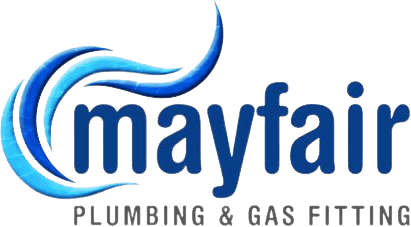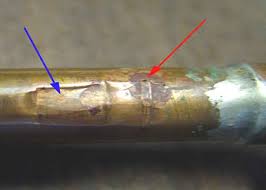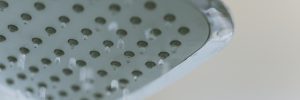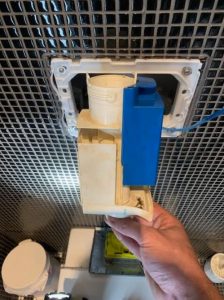Copper pipes have been a staple in plumbing systems for many years, known for their durability and reliability. Understanding the lifespan of copper pipes is important for homeowners and professionals alike, as it influences maintenance schedules, replacement planning, and overall plumbing system efficiency.
Additionally, the process of installing copper pipes, which requires adherence to building regulations and professional skills, plays a significant role in their longevity.
See also our article on the difference between copper and PVC pipes.
Introduction to Copper Pipes
Copper pipes are widely used in both residential plumbing and non-residential plumbing applications due to their resilience and efficiency. Lead pipes were previously used for plumbing installations but have been replaced by copper pipes due to concerns about water contamination and the superior longevity of copper pipes.
Copper piping systems are a great selling point for homes due to their longevity and reliability. The life span of copper plumbing pipes can vary significantly based on several factors, but on average, they can last between 50 to 70 years when installed correctly and maintained well.
Types of Copper Pipes and Their Longevity
There are several types of copper pipes, each with different life expectancies based on their thickness and application:
K Type Copper Pipes: These are the thickest copper piping available and are known for their durability, making them ideal for underground installations where they can resist pressure and environmental factors. K type pipes can last up to 100 years.
L Type Copper Pipes: These pipes have a medium thickness and are commonly used in residential plumbing. L type copper pipes are versatile, offering a longer lifespan, the ability to withstand higher pressure and acidity, and overall cost-effectiveness, lasting between 50 to 70 years.
M Type Copper Pipes: These are the thinnest pipes among the three and are typically used in non-residential plumbing applications or for lower-pressure situations. M type copper piping is cost-effective but has limitations regarding durability and susceptibility to high acidity and water pressure problems, with a shorter lifespan of around 20 to 40 years.
Factors Affecting Copper Pipe Lifespan
The longevity of copper water pipes is influenced by various factors, including:
Water Quality: High acidity or acidic water can lead to faster corrosion of copper pipes. Maintaining the pH level of water is crucial for preventing early failure.
Installation Quality: Proper installation by a professional plumber is essential. Poor installation can lead to issues like pinhole leaks and early failure of the plumbing system.
Environmental Conditions: Factors such as soil conditions, temperature, and humidity can affect the lifespan of copper pipes. Areas with highly acidic soils can cause corrosion.
Water Pressure: Higher pressure can stress the pipes, leading to wear and tear over time. Ensuring water pressure is within acceptable limits helps in prolonging the life span of the pipes.
Regular Maintenance: Conducting regular maintenance can help identify and fix minor issues before they lead to significant problems. Routine inspections can prevent early failure and extend the life span of the plumbing system.
Signs of Aging Copper Pipes
Identifying the warning signs of aging copper plumbing pipes can help prevent extensive damage:
Discolored Water: Discolored water is a significant indicator of corrosion within the pipes. If you notice a metallic taste or a change in the color of your drinking water, it might be time to inspect your copper piping.
Low Water Pressure: A drop in water pressure can indicate blockages or leaks in the copper piping system. Low water pressure is often a sign of aging pipes that need attention.
Leaks and Pinhole Leaks: Small leaks or pinhole leaks are common in older copper pipes. These leaks can lead to more severe issues if left untreated.
Maintenance and Care for Copper Pipes
To extend the life span of copper plumbing pipes, consider the following maintenance tips:
Regular Inspections: Have a professional plumber inspect your plumbing system regularly. Early detection of issues can save significant costs and prevent major damage.
Water Quality Management: Use water softeners and filtration systems to maintain optimal water quality. This can reduce the risk of corrosion and buildup within the pipes.
Proper Installation: Ensure that copper pipes are installed correctly to meet code expectations. Proper installation can significantly impact the durability and efficiency of the plumbing system.
Protective Measures: In areas with high soil acidity or aggressive environmental conditions, use protective coatings or sleeves for the pipes. This offers much protection against external factors that could cause corrosion.
Image source: http://croberts.com/erosion-corrosion.htm
Replacement Considerations for Copper Pipes
Despite their durability, there comes a time when old copper pipes need replacement. Here’s when and how to consider replacing them:
Indications for Replacement: Frequent leaks, persistent low water pressure, and discolored water are signs that the pipes might need replacing.
Replacement Costs: Replacing copper pipes can be a large investment, but it ensures the safety and efficiency of your plumbing system. Consider the costs of materials and labor when planning for replacement. In some cases, PVC or poly pipes may be a better alternative.
Alternatives to Copper Pipes: While copper piping is highly durable, alternatives like PVC pipes, galvanised steel pipes, and cast iron can be considered based on specific needs and environmental conditions. However, copper pipes remain a best investment due to their longevity and reliability.
Final Points
Copper pipes have a commendable life expectancy when installed correctly and maintained regularly. While certain factors like water quality, installation practices, and environmental conditions can affect their longevity, copper plumbing pipes can serve efficiently for several decades.
By recognisnig the warning signs of aging copper pipes and conducting regular maintenance, homeowners can ensure a reliable plumbing system that provides peace of mind. Investing in quality copper piping and adhering to best practices in maintenance can significantly extend the life span of your plumbing system, making it a wise choice for any property.
In summary, copper water pipes are a durable and reliable choice for plumbing systems, with an average lifespan ranging from 50 to 70 years, and even longer for K type pipes. Regular maintenance and timely replacements, coupled with awareness of the factors affecting pipe longevity, can ensure that your copper piping system remains in excellent condition for many years to come.







